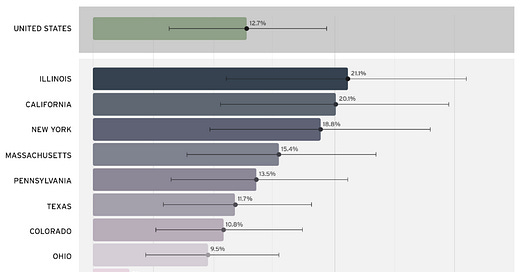Gas isn’t natural. And it’s on its way out.
Across North America, cities are acting to prevent the harmful environmental and health impacts of fossil gas, otherwise known as ‘natural’ gas. From New York City to San Francisco to Vancouver, cities are increasingly implementing bold policies to ban natural gas in new construction in an effort to accelerate the phase out of fossil fuels and shift towards fully electric buildings.
Los Angeles is the latest to announce a ban on natural gas hookups in new buildings—a critical step in the city’s efforts to eliminate reliance on fossil fuels which follows the city’s proposal to ban new gas stations, halt drilling of new oil wells, and scrap plans to rebuild gas plants in favour of clean energy sources.
Cities are no longer investing in fossil fuel infrastructure because science shows we must to take decisive action now to ensure the world can cut GHG emissions in half by 2030. The burning of fossil carbon, including fossil gas, is incompatible with a 1.5°C degree world. I’ve written in this newsletter previously about why fossil gas is far from clean, citing a recent C40 report on the environmental costs of its use.
There’s also the fact that, in addition to the CO2 released from burning fossil methane as a fuel, the unburned gas is known to leak in people’s homes, releasing greenhouse gases and air pollutants. Peer reviewed research from Stanford University estimates that fossil methane leaking from stoves in US homes alone has the same annual climate impact as about 500,000 gasoline-powered cars.
Recent research also reveals clear evidence that the use of fossil gas in the home is a serious health hazard. A peer-reviewed study published in December in the International Journal of Environmental Research and Public Health found that the use of a gas stove indoors is responsible for nearly 13% of childhood asthma across the United States, while another peer-reviewed study, carried out in California and published in October last year, found that gas leaks from stoves can create concentrations of benzene, a cancer-causing chemical, comparable to secondhand smoke.
Figure Source: Int. J. Environ. Res. Public Health
Moreover, the public health impacts of fossil gas stoves in the home are inequitably distributed - Black and Latinx children suffer from higher rates of asthma than White children, and the indoor air pollution from gas stoves exacerbates the problem. Additionally, surveys show that women in the United States and Canada cook more frequently than men, leaving them more exposed to fumes. Black and Latinx children are more likely to live in public housing, and public housing households are more likely to be headed by women. Towards the end of last year, Washington DC introduced a bill that would retrofit 30,000 low income homes with electric appliances at no cost to residents, in an effort to address these inequitable outcomes.
In the face of mounting evidence, a regulatory body in the United States, the Consumer Product Safety Commission (CPSC), announced it would consider taking action. A representative of the CPSC stated that in addressing the health and environmental concerns of fossil gas, “any option is on the table”.
For inspiration for clear and effective actions to address the negative impacts of fossil gas, they should first look to C40 cities like Los Angeles, New York and Washington DC. Why? Most emissions are from cities, and in the United States, around 35% of emissions are from buildings, 25% of which are heated and cooled by gas. Buildings are where the fight may be won or lost, making the debate about stoves critical, because if that is lost, addressing the electrification of buildings as a whole will be much harder.
Even though any regulations from the CPSC are a long way off (and not even guaranteed), is it a sign that the conversation about gas and its detrimental impacts on health and the environment are now becoming more honest about the serious harm gas causes to both? Given that it's well documented that the gas industry has lobbied aggressively to prevent action and convince users that fossil gas is clean and perfectly safe, action to counter this narrative is much needed. In the US, the political fight has already started - for example, Republican politicians announcing, “you can take my gas stove from my cold dead hands.”
What we do know is that city action banning fossil gas is an essential tool in decarbonization. And it works. The evidence against so-called natural gas can no longer be ignored.
Smart communications strategies are a must - London’s work on the health impacts of cars before regulating its Ultra Low Emission Zone is a great example of how to successfully engage the general public in a real conversation about these serious issues.
What I’m reading…
Still reading Herman Daly’s Economics for a Full World - it is great!
And for fun, the Slough House series by British Author Mick Herron, starting with Slow Horses. The story of failed spies put out to pasture by the British Secret Service. Also a TV series.
Until next time,





